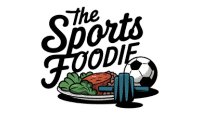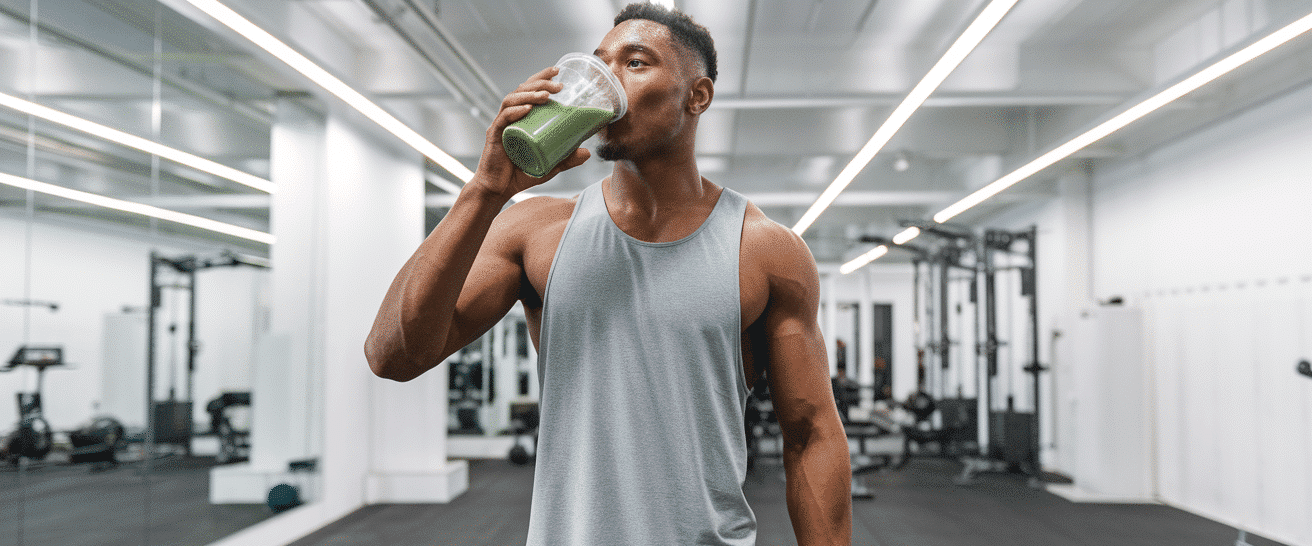Starting your day with a workout? Your morning meal can make or break your performance. Eating the right foods gives you the energy to power through your session without feeling sluggish or uncomfortable.
Research shows that fueling up before a 60+ minute workout boosts endurance and focus. While fasted exercise works for short sessions, skipping food can leave you feeling lightheaded or drained. That’s where a quick, balanced morning meal comes in.
Whether you’re a casual gym-goer or a seasoned athlete, finding the right pre-workout breakfast ideas is key. Let’s explore simple, effective options to keep you energized and ready to crush your goals.
Why a Light Breakfast Before the Gym Matters
Fueling your body before a workout can significantly impact your performance. Research shows that exercising on an empty stomach can lead to dizziness or weakness, especially during longer sessions. Eating a small meal helps stabilize your blood sugar and provides the energy boost you need to power through.

When you eat breakfast, your body replenishes glycogen stores, which are essential for endurance. A study from the Scandinavian Journal found that athletes who ate before training had 60% better endurance compared to those who didn’t. Carbs are key here—they fuel your muscles and keep you going strong.
For strength training, protein is equally important. Jessica Jones, a registered dietitian, recommends combining carbs and protein for optimal muscle recovery. This duo helps repair muscle tissue and prepares your body for future workouts.
- Fed workouts improve endurance and focus.
- Carbs replenish glycogen, preventing fatigue.
- Protein aids in muscle repair and recovery.
- Skipping food can lead to dizziness or weakness.
So, whether you’re lifting weights or running miles, eating breakfast ensures you’re ready to perform at your best. It’s not just about filling your stomach—it’s about fueling your success.
Best Time to Eat Before a Workout
Timing your meals before a workout can make a big difference in how you feel and perform. Eating too close to your session might leave you feeling sluggish, while eating too early could leave you running on empty. Finding the right balance ensures you’re working at your best.
According to Jennifer O’Donnell-Giles, a full meal takes about 90 minutes to digest. For smaller snacks, 30 minutes is usually enough. This means planning ahead is key, especially if you’re on a tight schedule.

30 Minutes Before: Quick Snacks
If you’re short on time, opt for easily digestible snacks that provide quick energy. These are great options for fueling up without feeling heavy:
- Bananas: Packed with natural sugars and potassium.
- Greek yogurt: A protein-rich choice for muscle support.
- Dates: High in carbs for a quick energy boost.
- Rice cakes: Light and easy to digest.
- 100% fruit juice: A hydrating, fast-absorbing option.
1-2 Hours Before: Balanced Meals
For longer workouts, a balanced meal eaten 1-2 hours prior is ideal. This gives your body enough time to digest and convert food into energy. Focus on combining carbs and protein for sustained fuel:
- Oatmeal with berries and a spoon of nut butter.
- Whole-grain toast with avocado and a boiled egg.
- A smoothie with spinach, banana, and protein powder.
Meal prepping can save time, especially for early risers. Prepare ingredients the night before to make your morning routine smoother.
Coffee vs. Supplements
Many people turn to pre-workout supplements for an energy boost, but coffee is often a better choice. It’s natural, cost-effective, and provides a steady release of energy. Here’s a quick comparison:
| Feature | Coffee | Pre-Workout Supplements |
|---|---|---|
| Cost | Low | High |
| Energy Release | Steady | Quick, but may crash |
| Ingredients | Natural | Often synthetic |
By timing your meals and snacks correctly, you’ll feel energized and ready to tackle any workout. Whether you’re grabbing a quick snack or enjoying a balanced meal, planning ahead ensures you’re at your best.
Light Breakfast Before Gym: Top Options
Choosing the right meal can set the tone for your workout. Whether you’re hitting the weights or running miles, these options are quick, balanced, and designed to fuel your body effectively.
Fruit Smoothie
A fruit smoothie is a versatile choice that can be customized to your needs. For a lighter option, blend almond milk, a banana, and a handful of spinach. If you’re looking for something heartier, add protein powder or Greek yogurt for an extra boost.
- Light: Almond milk, banana, spinach.
- Hearty: Add protein powder or Greek yogurt.
- Try Rhyan Geiger’s date shake: Dates, almond milk, and a dash of cinnamon.
Toast with Nut Butter
Whole-grain toast with nut butter is a simple yet satisfying option. It’s packed with healthy fats and carbs to keep you energized. For gluten-free alternatives, try rice cakes or gluten-free bread.
- Whole-grain toast with almond or peanut butter.
- Gluten-free options: Rice cakes or gluten-free bread.
Greek Yogurt with Berries
Greek yogurt is a protein powerhouse, offering about 15g per serving. Pair it with berries like strawberries, blueberries, or raspberries for a refreshing and nutrient-packed meal. If you’re lactose intolerant, opt for plant-based yogurt alternatives.
- Berry options: Strawberries, blueberries, raspberries.
- Lactose-free alternatives: Plant-based yogurt.
Foods to Avoid Before the Gym
What you eat before a workout can either fuel your success or hold you back. While some foods energize you, others can leave you feeling sluggish or even nauseous. Knowing what to avoid ensures you’re ready to perform at your best.
High-Fat Foods
High-fat foods like bacon, fried eggs, or avocado toast might taste great, but they’re not ideal before exercise. Fats take longer to digest, which can leave your stomach feeling heavy. For cardio workouts, this can slow you down and make you feel uncomfortable.
Instead of fried foods, opt for lighter options like boiled eggs or a small handful of nuts. These provide protein without the digestive delay. Cara Harbstreet, a registered dietitian, suggests avoiding fats within 90 minutes of your session to prevent nausea.
Sugary Snacks
Sugary snacks like granola bars or sweetened cereals might seem like a quick energy fix, but they can lead to crashes. Simple carbs spike your blood sugar, leaving you tired mid-workout. Dates, while healthy, can also upset sensitive stomachs due to their high fiber content.
For sustained energy, choose complex carbs like whole-grain toast or oatmeal. These release energy slowly, keeping you fueled throughout your session. Here’s a quick comparison of simple vs. complex carbs:
| Type | Examples | Impact |
|---|---|---|
| Simple Carbs | Sugary cereals, candy, fruit juice | Quick energy, but may crash |
| Complex Carbs | Oatmeal, whole-grain bread, sweet potatoes | Sustained energy, no crash |
By avoiding these problematic foods, you’ll feel lighter and more energized during your workout. Small changes in your pre-workout meal can make a big difference in how you perform.
Hydration: The Forgotten Key
Hydration plays a crucial role in optimizing your workout performance. While many focus on food, water intake is equally important for keeping your body functioning at its best. Dehydration can lead to fatigue, dizziness, and even muscle cramps, derailing your session.
Different workouts have varying hydration needs. For example, HIIT requires more fluids than yoga due to higher sweat loss. Recognizing the signs of dehydration—like dizziness, fatigue, and dry mouth—can help you stay on track.
Water vs. Sports Drinks
Choosing between water and sports drinks depends on your workout intensity and duration. Water is perfect for shorter sessions, while sports drinks are better for activities lasting over 60 minutes. These drinks replenish electrolytes lost through sweat, such as sodium and potassium.
Here’s a quick comparison to help you decide:
| Feature | Water | Sports Drinks |
|---|---|---|
| Best For | Short workouts | Long, intense sessions |
| Electrolytes | None | Yes |
| Calories | 0 | 50-100 per serving |
Timing Your Hydration
When you hydrate is just as important as what you drink. Centr recommends drinking 16oz of water two hours before your workout. For longer sessions, sip on an electrolyte drink during exercise to maintain energy levels.
- HIIT: Drink 8-10oz every 15 minutes.
- Yoga: 4-6oz before and after is sufficient.
- Endurance Training: Include sodium-rich foods to prevent cramps.
Overhydration can be as harmful as dehydration. Balance is key to keeping your body in top shape.
Quick and Easy Breakfast Recipes
Preparing a quick and nutritious meal doesn’t have to be complicated. These recipes are designed to save you time while keeping you energized. Whether you’re rushing out the door or need something portable, these ideas are a great way to start your day.
Overnight Oats
Overnight oats are a simple, no-cook option that’s perfect for busy mornings. Just mix your ingredients the night before, and they’re ready to grab and go. Here are three tasty variations:
- Peanut Butter: Combine oats, almond milk, peanut butter, and a drizzle of honey.
- Berry Bliss: Add mixed berries, chia seeds, and a splash of vanilla extract.
- Chocolate Delight: Mix in cocoa powder, a banana, and a touch of maple syrup.
These overnight oats can stay fresh in the fridge for up to three days, making them ideal for meal prep.
Hard-Boiled Eggs and Fruit
Pairing hard-boiled eggs with fruit is a balanced, portable option. Eggs provide protein, while fruit offers natural sugars for energy. Try these combos:
- Eggs with grapes and a handful of almonds.
- Eggs with sliced nectarines and a sprinkle of cinnamon.
- Eggs with apple slices and a dollop of almond butter.
For added convenience, boil a batch of eggs at the start of the week. They stay fresh for up to four days in the fridge.
Looking for more ideas? Check out these high-energy breakfast foods to boost your day.
With these recipes, you’ll have a great way to fuel your mornings without the hassle. Whether it’s overnight oats or hard-boiled eggs, these meals are quick, easy, and perfect for meal prep.
Tailoring Your Breakfast to Your Workout
Your workout goals determine the best way to fuel your body. Whether you’re lifting weights or running miles, your meal should match your activity. Eating the right foods ensures you have the energy to perform at your best.
Strength Training
For strength training, focus on protein. According to Jessica Jones, a registered dietitian, aim for at least 20g of protein before lifting. This helps repair muscle tissue and supports recovery. Here are three simple options:
- Cottage cheese with pineapple: A protein-packed snack with natural sweetness.
- Hard-boiled eggs: Quick, portable, and rich in protein.
- Turkey deli roll-ups: Pair with a slice of cheese for added protein.
Potassium also plays a key role in muscle function. Include bananas or sweet potatoes in your meal to prevent cramps and boost performance.
Cardio
Cardio workouts require more carbs to fuel your energy. Centr recommends consuming 50g or more of carbs before running or cycling. Sweet potatoes are a great choice, offering 27g of carbs each. Here’s how to time your meals:
- 1-2 hours before: Eat a balanced meal like oatmeal with berries.
- 30 minutes before: Grab a quick snack like rice cakes with honey.
- During HIIT: Sip on an electrolyte drink to stay hydrated.
By tailoring your meal to your workout, you’ll feel stronger, faster, and more energized. Small adjustments can make a big difference in your performance.
Conclusion
Finding the right pre-workout meal can transform your exercise routine. Whether you’re blending a smoothie, toasting whole-grain bread, or enjoying Greek yogurt, these options are simple yet effective. Experiment with timing to see what works best for your body and track your energy levels to optimize performance.
After your workout, consider a “second breakfast” to prevent crashes and support recovery. This could be a protein bar or a small snack to replenish nutrients. For more ideas, check out our protein bar recommendation list.
Remember, everyone’s needs are different. As Centr says, “Listen to your body.” Find what fuels you best and stick with it. With the right approach, you’ll feel stronger and more energized for every workout.


